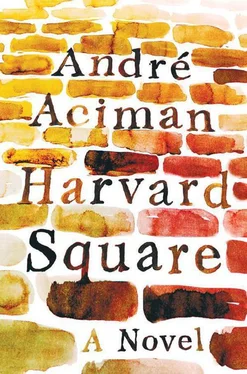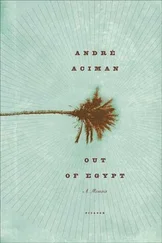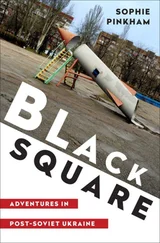Crestfallen, I walked back to the Square and headed toward Lowell House. The locked gate made me feel more lonely and homesick. But if Kalaj were sitting in his cab near the Square and happened to spot me on my way to Lowell House, I wanted him to know that the world I was headed back to right now was the furthest thing from the greasy-fingered warren of shabby happy-hour scavengers who’d champ down whatever was dished out with a cheap glass of pale red wine for a dollar twenty-two. I was angry. I wanted him to envy me, perhaps because I needed another’s gaze to help me look more kindly on my life and not see that, like so many left over in Cambridge this summer, I too was reduced to slumming. Perhaps I wanted to prove to him, and to myself through him, that I hadn’t sunk so low, that however privileged my life had once been in Alexandria, I had found ways to put both the Middle East and Europe behind me now and discovered, if not a new home, at least a new place in the world that could, to anyone who didn’t know better, pass for a baronial estate. I could never allow myself to think this was a home, because I knew that the precarious smidgen of privilege that Harvard doled out to people like me could, at a moment’s notice and with little more than a few scratches from Lloyd-Greville’s vintage Montegrappa pen, be readily taken away and put me back on the street by mid-January.
As I walked on the quiet cobbled sidewalk that led up to the locked gateway of Lowell House, I knew I was momentarily allowing myself to slip into the comforting childhood memory of erstwhile summers back in Egypt where you showered just before dinnertime, put on clean clothes after spending the day at the beach, and awaited whatever life might throw your way that evening. I peered through the locked gate entrance and spied the entirely deserted grassy courtyard where, months earlier that year, I’d sat and taught my class after students had begged me to hold the class outside. Now students and teachers were summering at places that weren’t necessarily far from Cambridge but whose whereabouts along the eastern seaboard I knew nothing of. I envied them their beaches, their summers.
Maybe Kalaj and I were not so different after all. Everything about us was transient and provisional, as if history wasn’t done experimenting on us and couldn’t decide what to do next.
But there was a difference: he was the control in the experiment; I the experimented-on. He was given the placebo, I the real medicine. I had witnessed the effects of the new drug, while he couldn’t understand why it wasn’t working. Neither of us belonged, but he was still the nomad, I had a ground to stand on. I had a green card, he a driver’s license. He saw the precipice every day of his life, I never had to look down that deep. There was always a fence or a hedge to block the view; he had run out of all partitions. But there was another difference between us: he knew how to wiggle his way around the precipice; I, however, put him right between the precipice and me. He was my screen, my mentor, my voice. Perhaps his was the life I was desperate to try out.
A WEEK LATER, ON SUNDAY, I CAME ONCE AGAIN TO Café Algiers, hoping that Kalaj wouldn’t show up, yet sensing all along that he might. This was another hot, stifling late summer day, and there was nowhere to go for cool air except the movies, but I didn’t want to spend the money. I looked at where he’d been sitting last week. A couple with a baby was occupying that table, so I found a table elsewhere in the café, sat down, and took out a copy of La Rochefoucauld’s Mémoires . Suddenly, I heard his voice. He was seated not far from me and was arguing with his backgammon opponent.
“You’ve done it again; don’t do it. This is a warning.”
I couldn’t tell whether this was the common verbal squabbling between backgammon players or an earnest warning. Just then Kalaj slapped a black ivory chip very loudly on the backgammon bar, almost in a rage.
“ Nique ta mère, neek your mother!”
Another dice throw, and his opponent, Moumou the Algerian, yelped, “ Nique la tienne, neek yours!”
“With what?” bandied Kalaj.
“Just play!” said Moumou.
Kalaj rolled the dice again, a double something, I couldn’t tell what, but I knew it was a double because I immediately heard slap, slap, slap, slap , four times. This was the endgame and he was going to win. But then he exploded.
“Not again! I refuse to play with you!”
“Why?” the Algerian asked.
“I will never, never, never play with you again.”
“Did I cheat?”
“Did I say you cheated?”
“Then what are you objecting to, what are you saying?”
“I am saying that you cannot keep rolling threes and ones every single time.”
“Why?”
“Parce que c’est mathématiquement impossible.”
Kalaj insisted on having him throw the dice again, because he was persuaded there was something fishy in his manner of holding the dice that kept rolling a three and a one. The Algerian was glad to oblige but said that the three and one he originally played still counted. He threw a five and a six.
“No,” objected Kalaj, “hold the dice the way you did before, in that underhanded way you have of slamming the dice against the corner of the box. Everything about you is underhanded. Like your people.”
“Like this you mean?” asked the Algerian, holding the dice in the way Kalaj had described.
“Exactly.”
“But that’s how I always throw my dice.”
“Just play!”
The man threw his dice and rolled a three and one.
“What did I tell you? Every time you throw the dice that way it’s a three and one.”
“But you’re absolutely mad, no wonder you have the brains of a tapir.”
“I am not mad.”
“You try then.”
Kalaj grabbed the dice and rolled a four and a two.
“Well, it’s because I don’t know how to do it your way. I’m never playing with you again. Bonne journée .”
He stood up, looked around, saw me, and walked over to my table. I knew I’d have to give up reading my book. He pulled up a chair and sat at my table, gave me a big handshake, tousled my hair, scanned the place from where he was now sitting in case he’d missed something during backgammon, and ordered coffee. “It’s way too hot,” he said. After ten or so minutes, he stood up, gulped down the remaining coffee, and said he knew of a place where it might be cooler—“Let’s go!”
Together we walked out to a small French patisserie on Holyoke Street. This was where the younger members of the faculty sometimes had coffee with graduate students when they wished to seem less formal. This was where you griped and groused and poured your heart out to teachers who meant well but couldn’t really change the system or do anything to help. This is also where they met you when they didn’t get tenure and grumbled on and on only to remind you that you were no less ineffectual as a friend than they were when you yourself were in the doghouse. Yet this, I told Kalaj, was where I had tutored French to Heather twice a week during the previous spring term.
“ Hezer , who?” he asked. Heather an undergraduate rower. I could just imagine the jokes he’d make at the expense of a woman whose voice was far lower than mine. I told him how at one point Heather had looked up at me during one of our tutorials and, on a whim it seemed, asked if I was interested in becoming a tutor at Lowell House. Of course I was interested. But how would she be able to help? Her answer couldn’t have been more lapidary. “No problem, then!” I didn’t understand what no problem meant. “No problem, as in pas de problème ,” she joked in the French she knew she’d never learn to speak. Gruff, husky, a touch butch. Seeing I wasn’t persuaded, she added, “I mean gladly!” “You’re sure?” “Sure I’m sure.” But noticing I continued to nurse lingering doubts about her offer, she finally blurted, “Look, I have pull.” Abrupt, no-nonsense, to the point. This, it took me a long while to realize, was how Park Avenue WASPs spoke their candor and how they went out of their way to make things happen when they wished to make them happen. I didn’t believe she had pull, or anything like it. But a month later I was asked to apply to become a non-resident house tutor.
Читать дальше












